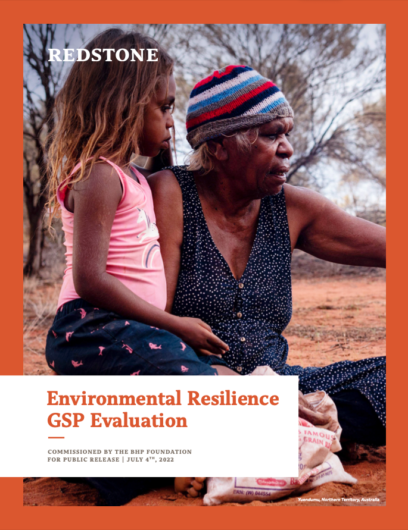An evolving program at a relatively young foundation
One of the BHP Foundation’s global programs—the Environmental Resilience (ER) Program—supports a portfolio of organizations that work with communities to build the long-term resilience of vital ecosystems and the people who steward them. The BHP Foundation commissioned this independent evaluation to better understand the ER Program’s impact to date and to provide recommendations to strengthen the Program going forward.
Durable ecological and social resilience requires patient, creative funders and commitment from local communities
This evaluation provides a snapshot of the ER Program’s progress-to-date. Overall, the Program has made important progress to advance an ambitious vision of equitable, community-driven conservation. Program partners have made important progress toward establishing foundational conditions, capacities and relationships for long-term resilient ecosystems and communities.
It also unpacks how the Program’s work reflects broader trends in conservation philanthropy, including Indigenous-led conservation and philanthropic approaches to achieving “scale” through policy, markets, and influence strategies. Amongst other takeaways, this report finds that:
- The ER Program strengthened the capacity of non-profits through hands-on, multi-year support, leading to stronger relationships with communities, governance improvements in these geographies, enabling policies for environmental resilience, and attitudinal and cultural shifts.
- The ER Program’s theory of change is ambitious and comprehensive; going forward, the Program has an opportunity to further hone its strategic focus and goals.
- Further embracing Indigenous-led conservation will require the Foundation to rethink its approach to setting goals, mitigating risks, and monitoring progress. An appendix to the report provides further clarity on what it would look like to “decolonize philanthropy”.
The report closes with five recommendations to support the ER Program pursue its ambitious vision: to seek landscape-scale resilience and to catalyze global-scale improvements in how conservation is done.
Learn more
Do you have any questions about the evaluation’s background, content, or implications for your own work? Please reach out. We’d love to help.
